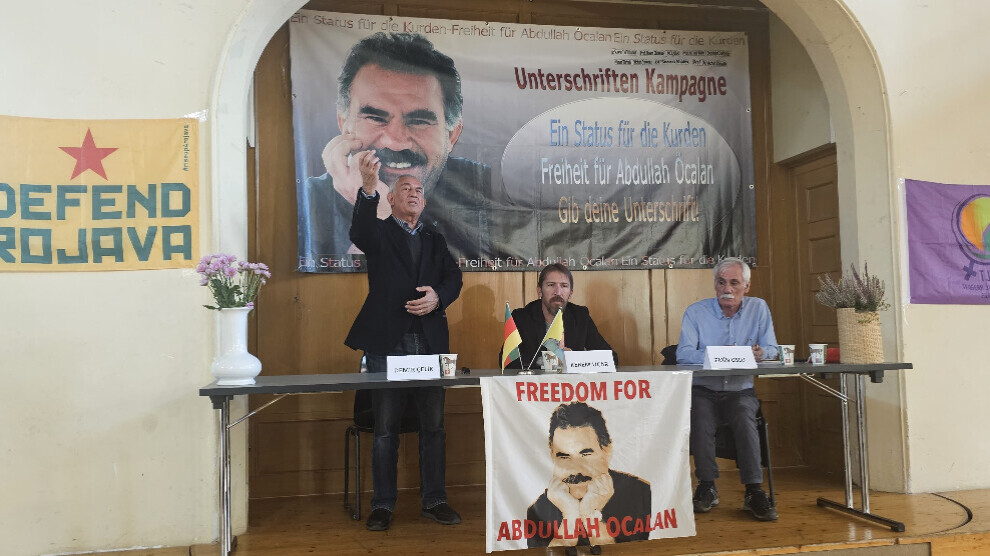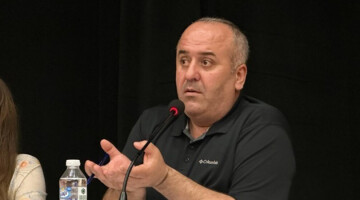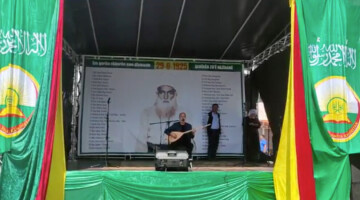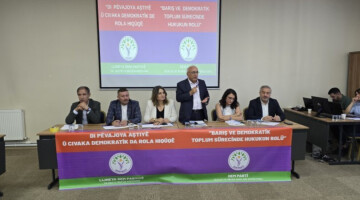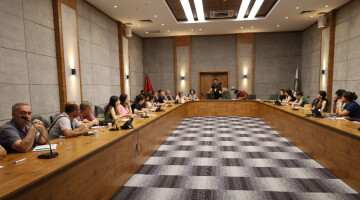FEDA co-chair Demir Çelik and the Director of the Swiss Kurdish Language Institute Emin Uslu attended the events organized within the scope of the 'Freedom for Abdullah Öcalan, a political solution to the Kurdish question' initiative in the Swiss city of St. Gallen.
A panel titled 'Leadership and Democratic Socialism' and a photo exhibition titled 'Abdullah Öcalan and the Rojava Revolution' were organized by the Democratic Kurdish Society Center.
While the Imralı process was narrated chronologically in one section of the two-part photo exhibition, the Rojava revolution was narrated chronologically in the other section.
The exhibition, with photographs and informative texts, was also visited by representatives of JUSO St. Gallen (Socialist Youth), RKP St. Gallen (Revolutionary Communist Party) and the SP.
Demir Çelik drew attention to the aggravated isolation imposed on Kurdish People's Leader Abdullah Öcalan and called on institutions, organizations and individuals to be sensitive about this issue.
Çelik said: "Mr. Öcalan's freedom is a duty to all of us, because this isolation is not only applied to his person, but to the entire Kurdish people, and to the hope of the people of the Middle East and the world to live in peace."
Çelik stated that the existence of a state is not necessary for society to govern itself, because society can organize and govern itself with ethical values.
Emin Uslu spoke about the connection between socialism and language. He translated the book "The Alphabet of Socialism", which has an important place in Abdullah Öcalan’s life, into Kurdish, and said the translation of this book was his response to the "nonsense of some denialist fascist Turkish politicians who said that Kurdish is not a language of science and philosophy.”
Uslu also spoke about the history and characteristics of the Kurdish language, and said: "Kurdish is ranked 9th among the richest languages in the world. This rich language, which is the mother tongue of more than 50 million people, is being destroyed by bans and assimilation policies. Protecting our language means protecting our identity, which the system denies."

